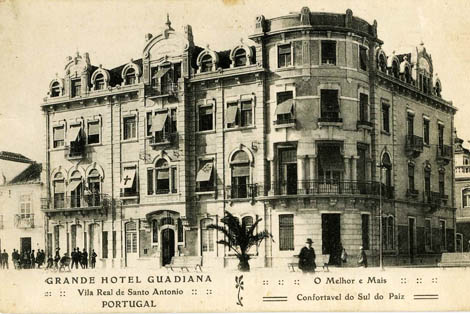 The account continues of the trip that the President of the Republic Óscar Carmona made in 1932 to the Algarve, covering the region from one end to the other. In official speeches, reproduced by newspapers subject to Censorship, there were praises of the Dictatorship. Other times…
The account continues of the trip that the President of the Republic Óscar Carmona made in 1932 to the Algarve, covering the region from one end to the other. In official speeches, reproduced by newspapers subject to Censorship, there were praises of the Dictatorship. Other times…
After the visit to Tavira, on that afternoon of February 16, 1932, President Carmona and the other delegation (president of the Ministry and ministers of the Navy, Justice, War and Commerce) left, at around 17:00, in the direction of Vila Real de Santo António .
According to the newspaper “O Século”, when passing through “Conceição, Cacela and Monte Gordo, there were demonstrations, people and school children came to the road.”
For the “Diário de Notícias” it was in Vila Nova de Cacela that the populations most expressed their satisfaction at receiving the head of state: “the people opened up to the passage of the procession, greeting Mr. General Carmona."
At the entrance to Vila Real de Santo António, there was a couplet greeting the head of state and entourage, as well as many people. In fact, the entire town was flagged and covered with quilts, for the reception of distinguished visitors. “The population gathered in the streets on the way to the Largo do Município, seeing this curdled mass of a compact crowd”.
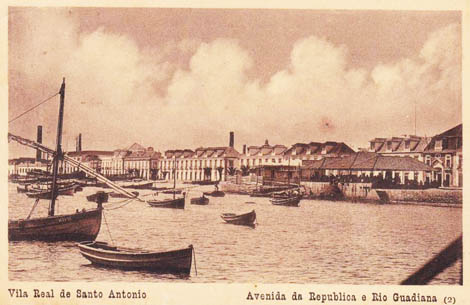 When he arrived, the head of state was received with many rockets and mortars, but also with applause and cheers.
When he arrived, the head of state was received with many rockets and mortars, but also with applause and cheers.
In the square and according to the DN, “all the local authorities could be seen, with their banners, and the honor guard [force of hunters 4 and picket of firefighters] saluted, and the band performed the «Portuguese»”.
After reviewing the guard of honor, the president entered the town hall, where the welcome ceremony took place. The head of state was awaited there, by all the authorities, as well as by the mayor of Ayamonte, commander of the Guardia Civil and the consul of Portugal in that city.
The ceremony was presided over by General Carmona, flanked by ministers and other authorities, and began when “Mr. chairman of the CA of the Chamber, mr. Matias Gomes Sanches, using the floor, greeted Mr. General Carmona and the ministers, thanking them for the visit with which the Algarve will gain so much.”
Then, Matias Sanches presented the workers who were going to be decorated by the President of the Republic, Cesário Rodrigues Calafate, 70, a worker in canning factories in Vila Real, and Manuel Cordeiro Júnior, 85, a potter, from Alcoutim.
General Óscar Carmona spoke then, who, according to the DN, “thanked the reception given to him in Vila Real by his good people, who praised them, and then decorated the workers with the Order of Industrial Merit, embracing both old people, an act that the audience crowned with applause.”
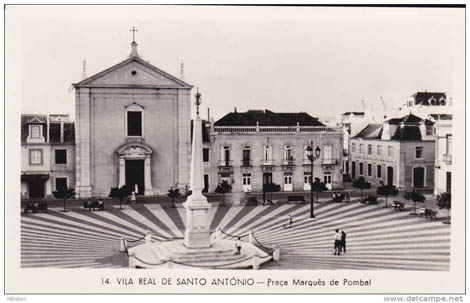 Afterwards, many rockets were launched and the band played the national anthem. After the ceremony, the Ayamontina entities were presented to the head of state, in the Chamber's president's office.
Afterwards, many rockets were launched and the band played the national anthem. After the ceremony, the Ayamontina entities were presented to the head of state, in the Chamber's president's office.
The distinguished visitors then stayed at the Hotel Guadiana, receiving much acclaim as they left the town hall.
In the evening, the gala banquet was held in the main hall of the Captaincy of Porto, in which the main figures of the town, the Algarve (bishop, civil governor, etc.) and the city of Ayamonte (mayor, commanders of the Guardia Civil, of Carabineros) participated. , etc.), for a total of 150 people.
The President of the Republic was greeted at the entrance with "a thunderous round of applause, with the orchestra playing «A Portuguesa»." The room had many decorations, purposely made for the realization of the Fisheries Congress.
The first speaker was the mayor, who, after greeting the president, praised the “work of the dictatorship which is – he said – the only guarantee of peace and tranquility in this sacrificed Homeland, which cannot be at the mercy of one or another individual without scruples. (Applause). We are going through – he added – a difficult period of political disturbances everywhere, and it is necessary to maintain in Portugal the old nationalist spirit, cemented for centuries. He externalized the hope that the army will be able to save the Nation from the extremely serious trance that threatens the world and recalled the work carried out through various ministries by the government of the Dictatorship (…).”
This was followed by Oliveira Baptista, president of the local commission of the União Nacional, and soon after Joaquim Cruz, as representative of the working class.
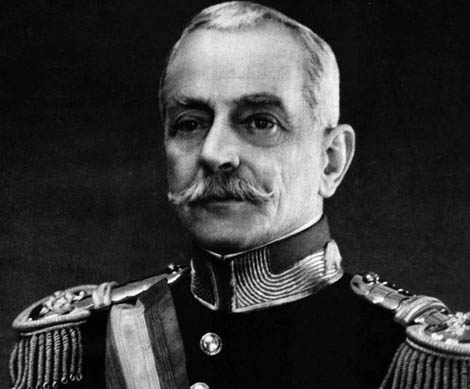 The latter, according to the DN, “thanked for the decorations, saying that no government had ever distinguished the workers like this. He asked the Government to help the working classes, legislating to protect them against disability and old age, ending his speech by greeting mr. President of the Republic and the ministers with cheers and applause.”
The latter, according to the DN, “thanked for the decorations, saying that no government had ever distinguished the workers like this. He asked the Government to help the working classes, legislating to protect them against disability and old age, ending his speech by greeting mr. President of the Republic and the ministers with cheers and applause.”
Preceding General Carmona's speech and representing the industrialists of Vila Real, Eng. Sebastian Ramirez. In one of the longest speeches of the night, he praised the Dictatorship, enumerated its work, improvements and assistance, as well as the disappearance of public debt.
The newspaper “O Século” recorded his speech: “(…) Now Portugal is already paying its bills and the country is well governed. (Palms). The speaker greeted Mr. dr. Oliveira Salazar, who performed a great work and performed a true miracle. The Dictatorship is not a transitory regime, because it came to establish the empire of order in Portugal, eliminating disorder. We must fight the hollow phrases and lies of the constitution. Parliamentarianism was nothing more than a fiction of freedom, which violated all freedoms. The work of the Dictatorship, made without hatred, but intense, is the work of many, but even if it were a few, it would become generalized. He recalled with longing the trip of King D. Carlos to the Algarve. He asked mr. General Carmona that connects the eastern part of the Algarve by a road that goes from Vila Real to Mértola. He ended by saluting the Head of State, saying that his ideas are new clarities that illuminate the world, prevailing in Czech – Slovakia, Egypt, Turkey and Italy. Many applauses and “Cheers” to the Dictatorship, General Carmona and the Republic were heard at the end of this speech”.
Finally, the head of state spoke, beginning by thanking the speakers who preceded him. DN wrote about his communication: “he made several political considerations. He praised the workers' representative's speech and declared that the Government will help the workers, giving the workers in Vila Real the cooperation they request. Then, he defends the current constitution of society, as another one does not know what it is, and the experiences of utopia are dangerous”.
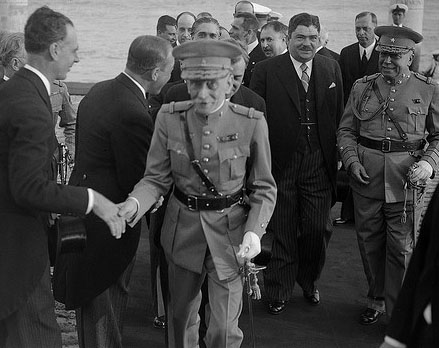 At one point and following the words of Eng. Ramirez, he said that “encyclopedist ideas have had their time, not being harmful. Now there are other new ideas and so the situation men are not reactionaries. He alluded to freedom, its concept and its definition, saying that it is not just for some, but for everyone. He considered the order that, as a basis for progress, must be maintained. He denied any violence against opponents of the Dictatorship”.
At one point and following the words of Eng. Ramirez, he said that “encyclopedist ideas have had their time, not being harmful. Now there are other new ideas and so the situation men are not reactionaries. He alluded to freedom, its concept and its definition, saying that it is not just for some, but for everyone. He considered the order that, as a basis for progress, must be maintained. He denied any violence against opponents of the Dictatorship”.
The president also said that this would not be prolonged indefinitely because “the ideas of a return to constitutional normalcy are settled, as soon as conditions allow and the work in progress is carried out under the terms demanded by the Nation. The Dictatorship will take its natural course. He then referred to the Constitution presented in the Sala do Risco to organize the Estado Novo, putting an end to the caciquism and the old vices of the old system”.
His speech ended “thanking the Algarve's reception of him and cheering Vila Real, the Fatherland and the Republic, to which the audience responded with applause and cheers.”
The president and other visitors then stayed at the Hotel Guadiana, from where they left the next morning, after visiting the port works, heading for Portimão, with stops in S. Brás de Alportel, Loulé and Lagoa.
(Go on)
Read the 1st part of this article here: Read the 2st part of this article here: Read the 3st part of this article here: Read the 4st part of this article here: Read the 5st part of this article here: Read the 6st part of this article here:
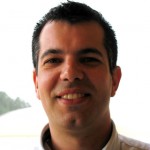
Author Aurélio Nuno Cabrita is an environmental engineer and researcher of local and regional history


















Comments